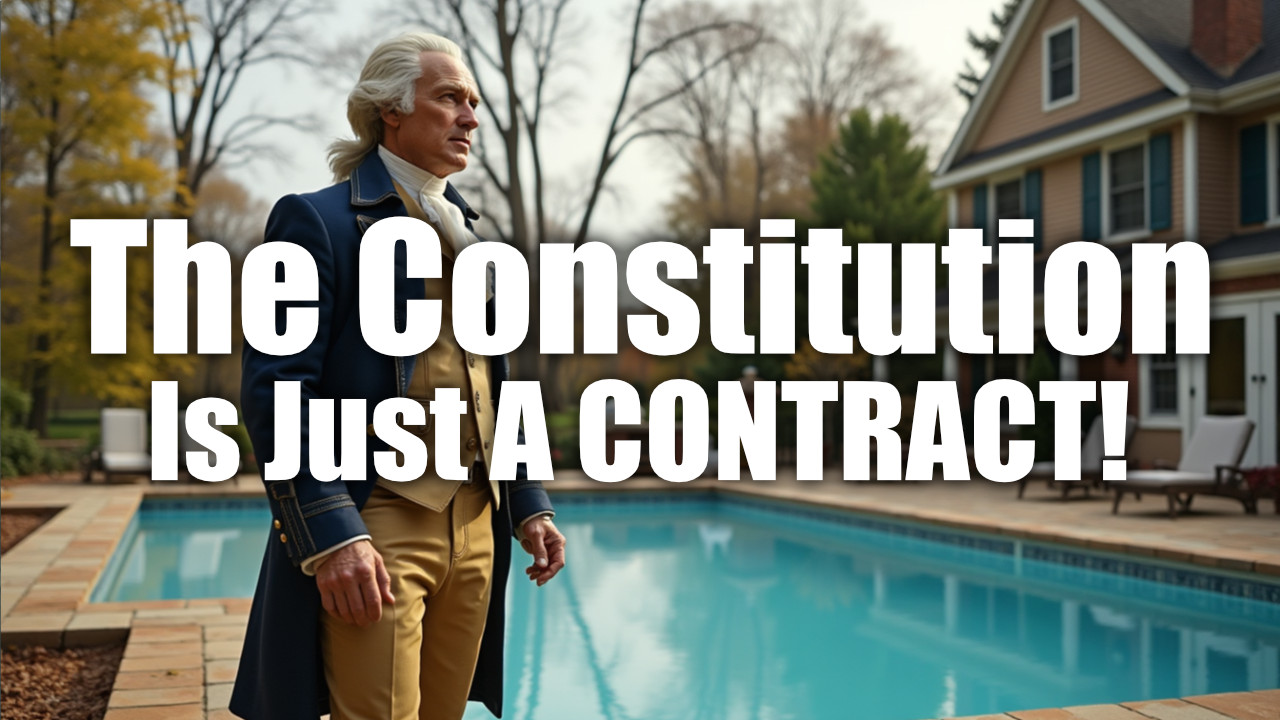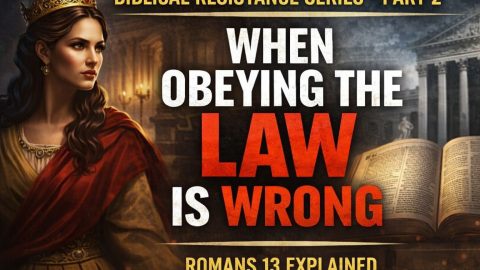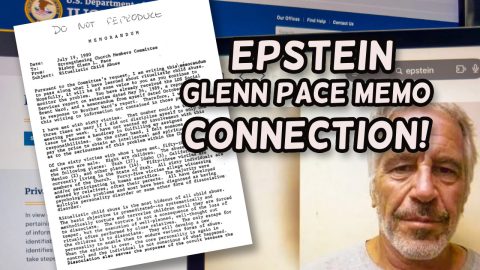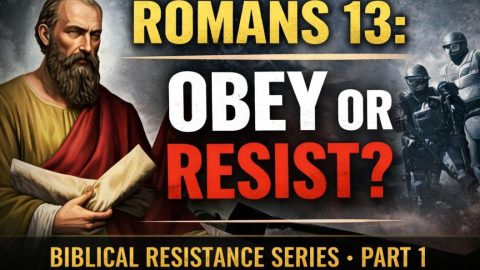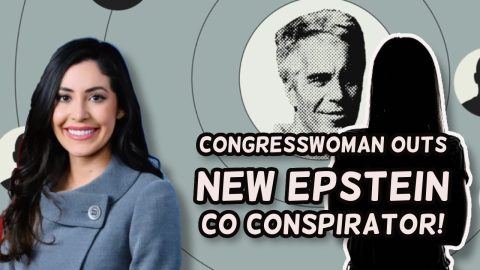A Constitution is a compact is a contract. Don’t believe me? Find out what the Founding Fathers had to say! This is an excerpt from Ben McClintock’s keynote presentation at the 2025 Constitution Party convention, entitled “Make America STATES Again!” Watch the whole presentation here: https://youtu.be/eJmEaCCcoL4
Help support ad-free content with a one time donation or becoming a member today.
Thank you to our sponsors
https://connollyandsonsconcrete.com/
https://www.dentistry4health.org
http://www.highercallingfirearms.com
http://www.americanappliancehvac.com
https://insurewithcompass.com/sbarlow.html
TRANSCRIPT
When we talk about the Constitution, sometimes we forget about the basics, the fundamentals, the natural law, and then also what created the Constitution.
The fact that it’s not just this thing that existed and then created all these sub -bodies, but actually that it was 13 independent nations that formed a union, and what that really means.
And so what we have to understand about the Constitution is that it’s a contract between these independent nations.
And the Founding Fathers talked about the fact that this is a contract.
We have here Thomas Jefferson, where he talks about that.
This isn’t the Kentucky Resolution, so the state of Kentucky was saying that an act of the federal government was illegal.
And so Thomas Jefferson being one of the authors of that said that the several states composing the United States of America are not united on the principle of unlimited submission to their general government.
But by a compact under the style and title of a constitution for the United States and of amendments there too, they constituted a general government for special purposes.
So it’s a compact.
What does that mean, a compact?
Let’s go into Article 7 of the Constitution.
The compact is a formal agreement or contract.
So we have entered into by the states a contract to have specific limited duties performed.
And so in Article 7 of the Constitution, we learn more about the application of that contract.
It says the ratification of the conventions of the nine states shall be sufficient for the establishment of this Constitution between the states, so ratifying the same.
So this Constitution is between those states.
They needed to have a certain amount of states saying we’re going to agree to this contract before it was binding upon those that did enter into it, and then it was between those states.
It wasn’t between this all -powerful body and these sub bodies that were subject to the bigger body but it was a another body that was created by these and it was something between the states specifically and then we go to the next article in the constitution we have the tenth amendment where it explains this concept of a compact even more in the contract says the powers not delegated to the united states by the constitution nor prohibited by it to the states are reserved to the states respectively or to the people.
So once again saying that this contract is a limited contract whether we have given limited powers to this new body that we have created and that if we haven’t given that body powers then that body doesn’t have that power specifically and then that those powers are then of course reserved by the creators, the states and or the people themselves.
So again, the contract and the Kentucky resolution, Thomas Jefferson says, “The several states who formed that instrument “mean the Constitution being sovereign and independent.”
So even at this point, we formed the Constitution and we have created this compact, this contract, and we were still considered sovereign and independent nations.
Have the unquestionable right to judge of its infraction and that a nullification by those sovereignty’s of all unauthorized acts done under the color of that instrument is the rightful remedy.
So he’s saying that, no, it’s not the judges, it’s not the Supreme Court that decides when the Constitution is violated. It is the states, it’s the create doors of the compact, of the contract that are the ones that are the final arbiters of when something is constitutional or when it goes beyond those bounds.
And we’re gonna get into a little bit some more modern application of that.
And so that it kind of helps us to really quantify it and make it make more sense when we get to that.
But let’s go to the next part of the, this is in the ratifying convention, the father of the Constitution, James Madison, explained this contract nature saying that clearly, according to the expositors of the law of nations, that The breach of any one article by any one party leaves all other parties at liberty to consider the whole convention to be dissolved, unless they choose rather to compel the delinquent party to repair the breach. So when you have a contract between two parties and one of the parties violates that contract, you have one of two options.
You have either saying, “Okay, the contract’s null and void, we’re not going by it anymore, we’re separating our ways,” or you say, “I’m going to force you to be a party to the contract.
I’m going to force you to obey the contract that we both agreed to go by.”
Those are our two options.
We either separate ourselves or we enforce the document.
There’s no other option when you have a party violating the contract.
And then again, it’s in the Virginia resolution that came out about the same time as the Kentucky resolution, nullifying an act of the federal government. James Madison said that this assembly doth explicitly and peremptorily declare that it views the powers of the federal government as resulting from the compact, to which the states are parties, as limited by the plain sense and intention of the instrument constituting the compact, as no further valid that they are authorized by the grants enumerated in that compact.
So in layman’s terms, that it is clear, there is thing that the federal government has the power to do that isn’t specifically listed as a power to do and that it is a plain sense the intention of the contract is no further valid than when they obey the limited jurisdiction that is given within that document.
And what’s really important to understand about James Madison is he was what’s called a federalist.
He was in support of the union.
It wasn’t like he was Thomas Thomas Jefferson was considered a anti -Federalist where he thought that the Constitution gave this new general government too much power.
So you can imagine somebody that was against the Constitution to begin with would say, “Oh, I’m going to find a reason why it’s no longer valid.”
No, we have James Madison, the father of the Constitution, saying, “When you go beyond these bounds, you are violating the contract that we entered into.”
And so they actually said in the Virginia resolution, it was their duty to preserve the union was to enforce the contract by disobeying actions that violated the Constitution.
And so it was their effort to be able to preserve the union that they said no we’re not going to obey the federal government.
So now we have the law of agency and what that means in contract.
So we have this gentleman here and we have a contractor, we have a homeowner and we have a home builder or a landowner and a home builder and they get together and they enter into a contract they agree together that I’m gonna give you a certain amount of money and you’re going to build this house the way I’ve asked you to build it and so they agree to it they enter a contract and if they if the builder does what he’s told exactly how he’s told then he’s do the money that was agreed to in advance but let’s say the contractor says you know what this family could really use a pool.
You know they’ve got kids before their general welfare of their family so I’m gonna add a pool to this and of course because I spent the money I spent the time for the equipment and the materials he owes me to build this pool but that’s a violation of the contract because what was he what was he given the authority to do?
Only to build the house nothing more and so any reasonable judge that this was brought to you that if this This contractor goes together, goes to court and says, “You owe me money for the pool.”
The judge is going to say, “No, that contract was no void when you built the pool, when you were not authorized to build the pool.”
And so any, I think, reasonable person would say, “This makes sense.”
All of a sudden, when we apply this to the Constitution, people think that that’s radical.
You know, that might be extreme.
But that’s exactly what it is.
It’s a contract between these parties, and they have agreed to do certain things.
And if they do those certain things the parties involved have agreed to go along with it but as soon as they go beyond as soon as they build that pool no longer obligated to obey any of the actions any of the laws that were passed by the body that was only authorized to do certain things. So the the thing to do is to fire the contractor.

